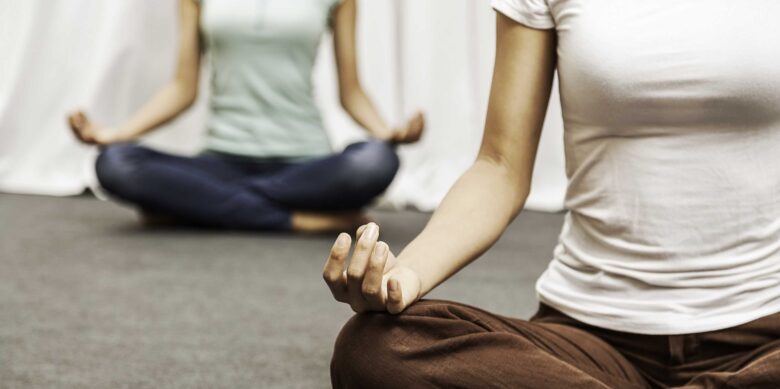Introduction to Meditation
Imagine a moment of pure stillness. A time when the world around you fades away, and all that exists is you, your breath, and a sense of calm that washes over your entire being. This isn’t just daydreaming; it’s the transformative power of meditation.
Meditation has been practiced for thousands of years across various cultures and traditions. Today, it’s more relevant than ever as people seek ways to navigate the complexities of modern life. With its growing popularity, many are discovering how this ancient practice can significantly enhance their physical health and mental well-being.
Whether you’re new to meditation or have dabbled in it before, there’s always something fresh to learn about mindful living. Let’s delve into the fascinating benefits waiting for you on this journey toward inner peace and self-discovery.
Understanding the Mind-Body Connection
The mind-body connection is a powerful relationship that influences our overall health. It reflects how our thoughts, emotions, and physical sensations interact.
When we experience stress or anxiety, our body responds with tension. This can manifest as headaches or muscle pain. Conversely, positive emotions can lead to feelings of lightness and relaxation.
Meditation serves as a bridge between these two realms. By focusing on the breath or calming the mind, individuals often find relief from physical discomforts tied to emotional strain.
Research supports this link; studies indicate that mindful practices can lower blood pressure and reduce chronic pain. The more we understand this connection, the better equipped we are to nurture both mental well-being and physical health.
In essence, fostering awareness of how our minds influence bodily states opens doors to healing and balance in life.
The Physical Benefits of Meditation
Meditation offers remarkable physical benefits that many people overlook. Regular practice can significantly lower blood pressure, creating a calmer heart and reducing the strain on this vital organ.
Moreover, it enhances immune function. Studies show that those who meditate often enjoy better resistance to illness due to increased mindfulness and reduced stress levels.
It also promotes better sleep quality. Individuals report falling asleep faster and experiencing deeper rest after incorporating meditation into their routines.
Additionally, meditation can alleviate chronic pain by changing how we perceive discomfort. By fostering relaxation, it helps reduce the tension in our bodies that contributes to ongoing aches.
Consistent practice encourages an overall healthier lifestyle. Many find themselves more attuned to their bodies’ needs, leading to improved nutrition choices and increased physical activity.
Mental and Emotional Benefits of Mindful Living
Mindful living profoundly impacts mental and emotional well-being. By focusing on the present moment, individuals can cultivate a deeper awareness of their thoughts and feelings. This practice helps in recognizing negative patterns that may otherwise go unnoticed.
As you engage in mindfulness, stress levels begin to decrease. This reduction leads to a calmer mind and improved emotional regulation. Many practitioners report feeling more balanced and resilient when faced with challenges.
Moreover, mindfulness fosters empathy and compassion towards oneself and others. It encourages positive relationships by enhancing communication skills and reducing reactive tendencies.
With regular practice, you’ll likely experience an increase in happiness. Greater appreciation for life’s simple moments becomes possible as distractions fade away, allowing joy to flourish naturally.
Incorporating Meditation into Daily Life
Incorporating meditation into your daily life doesn’t have to be overwhelming. Start small by setting aside just five minutes each day. Find a quiet space where you feel comfortable and can focus.
Try different times for practice—perhaps in the morning before you start your day or during lunch to reset your mind. Consistency is key, so choose a time that works best for you.
Use guided meditation apps or videos if you’re unsure where to begin. These resources can provide structure and help ease you into the practice.
As you progress, consider adding mindfulness techniques throughout your day. Simple practices like deep breathing while waiting in line or savoring each bite of food can enhance your overall experience.
Remember that any moment spent being mindful counts towards your journey. Embrace flexibility; it’s about finding what resonates with you and fits seamlessly into your routine.
Tips for Beginners
Starting your meditation journey can feel daunting, but it doesn’t have to be. Begin with just a few minutes each day. Gradually increase the time as you grow more comfortable.
Find a quiet space where you won’t be disturbed. This could be a cozy corner of your home or even outside in nature. The goal is to create an inviting atmosphere.
Focus on your breath. Inhale deeply through your nose and exhale slowly through your mouth. Let thoughts drift away; they will come back, but don’t dwell on them.
Consider using guided meditations available online or through apps. These resources provide structure and can enhance your experience.
Remember that there’s no perfect way to meditate. Be gentle with yourself and embrace the process without judgment.
Conclusion: Why Everyone Should Try Meditation
Meditation offers a wealth of benefits that can positively transform your life. Whether you’re seeking to enhance your physical health or improve emotional well-being, the practice serves as a powerful tool for self-discovery and growth.
As you explore meditation, you’ll find it not only helps in managing stress but also fosters clarity and focus in everyday tasks. The sense of calm that arises from regular practice can lead to better decision-making and increased creativity.
The journey doesn’t require extensive time commitments or special equipment—just a willingness to sit quietly with yourself for a few moments each day. This simple act can pave the way toward greater mindfulness, allowing you to live more fully in each present moment.
Everyone has something valuable to gain from incorporating meditation into their routine. It’s accessible, adaptable, and profoundly rewarding. Embracing this practice invites balance and peace into our often chaotic lives. So why not give it a try? You might be surprised at what unfolds when you take that first step on your meditation journey.



